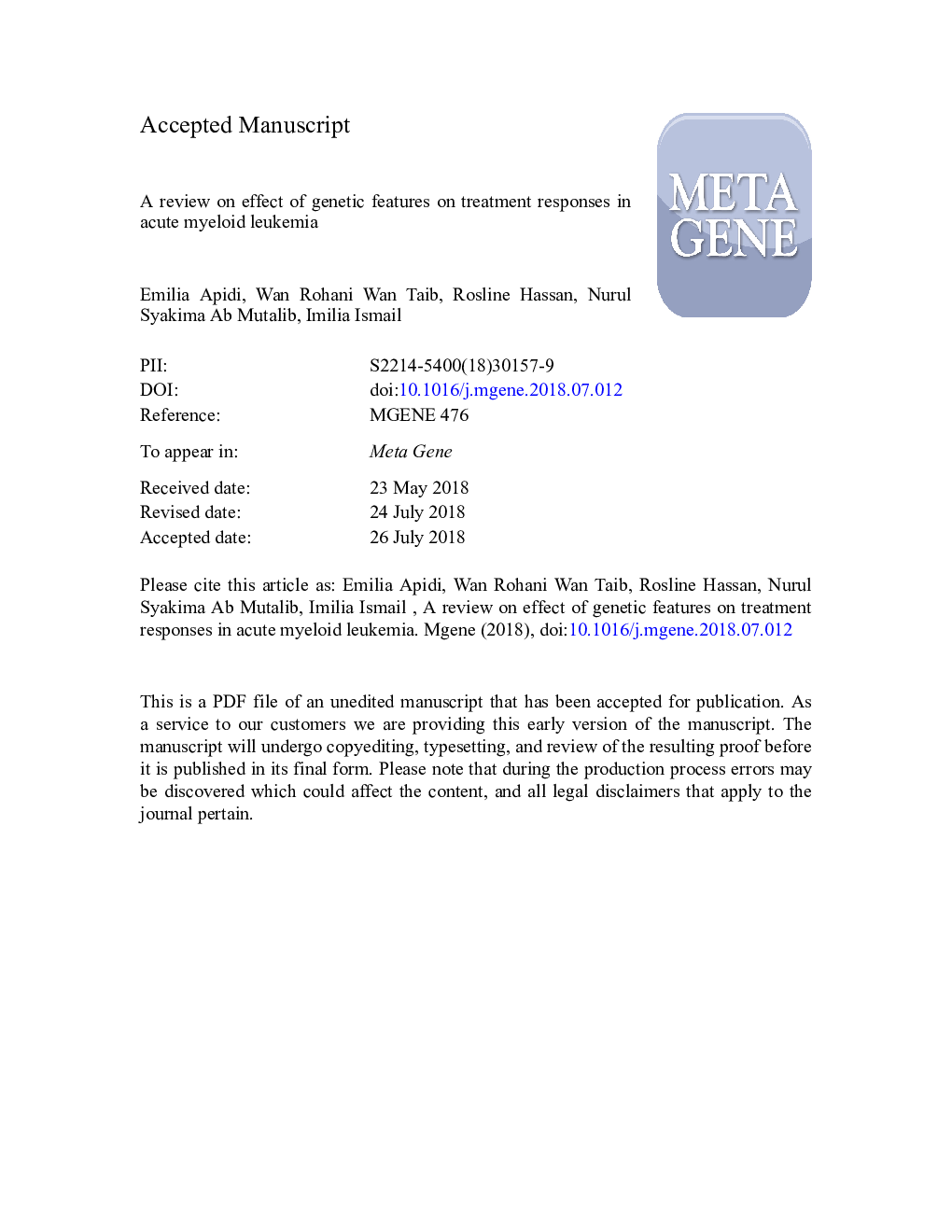| Article ID | Journal | Published Year | Pages | File Type |
|---|---|---|---|---|
| 8388770 | Meta Gene | 2018 | 24 Pages |
Abstract
Background: Acute myeloid leukemia is a hematological disorder distinguished by clonal expansion of undifferentiated myeloid precursors leading to impaired haematopoiesis. The presence of various types of genetic mutations and chromosomal abnormalities in AML are among the critical factors affecting clinical outcomes and response to induction and post-remission treatment. Aim: In this review, we collate the findings from previous literatures regarding the effects of cytogenetics and molecular mutations on the response to induction (either lower or intensified) treatment. In addition to the gene mutations in AML that influence the clinical decisions for post-remission treatment, we also focus on the prognostic significance of several members of inhibitor of apoptosis protein (IAP) family as well as their endogenous inhibitor, Smac/DIABLO that have shown great promise as a marker in predicting response to AML treatment regimen from the associated publications. Conclusion: Incorporating this knowledge into the clinical settings is important enough in order to improve the disease outcome and clinical management of patients with AML.
Related Topics
Life Sciences
Biochemistry, Genetics and Molecular Biology
Biochemistry, Genetics and Molecular Biology (General)
Authors
Emilia Apidi, Wan Rohani Wan Taib, Rosline Hassan, Nurul Syakima Ab Mutalib, Imilia Ismail,
